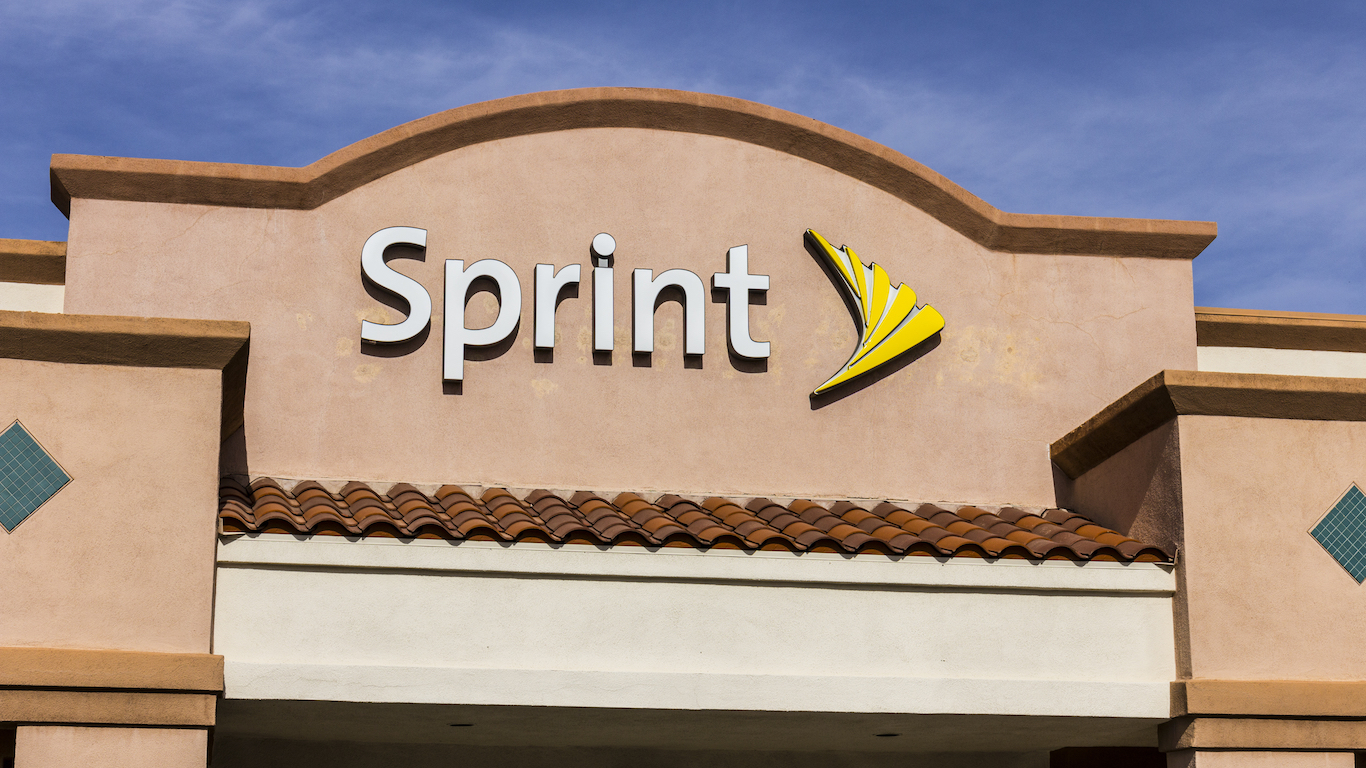
Looking at Sprint Corp.’s (NYSE: S) earnings report for its 2019 third fiscal quarter, it doesn’t really seem as though the stock should have been pummeled into a new 52-week low. The company posted a loss, but it was smaller than expected, while revenues were a bit low.
Maybe the softness in the share price is down to the still-pending merger with T-Mobile US Inc. (NYSE: TMUS). In November, the attorneys general in 10 states, including California and New York, sued to block the merger claiming that it would cause irreparable harm to mobile subscribers across the country, particularly low-income and minority communities.
But Sprint CEO Michel Combes commented, “As we await a decision in the state attorneys general lawsuit, I continue to believe the merger with T-Mobile is the best way to deliver the benefits of competition to American consumers.” That doesn’t mean Sprint will win, but it does mean that a decision to allow the merger is still months (and probably millions of dollars) away.
The big problem that has investors making for the exits Monday is the Sprint’s rising churn rate. For the year to date, the churn rate in the postpaid phone business is up from 1.71% in the same period last year to 1.91%. For the quarter, the postpaid phone churn rate rose from 1.84% a year ago to 2.06%. Prepaid (contract) subscriber churn rose from 4.83% to 4.92% year over year in the quarter and from 4.58% to 4.7% in the first nine months of the fiscal year.
Along with more turnover among its customers, Sprint’s average revenue per user (ARPU) in its postpaid business (including phones and non-branded plans) fell from $43.64 in the year-ago quarter to $42.02, and nine-month ARPU fell from $43.73 to $42.29. Prepaid ARPU dropped from $126.14 quarter over quarter to $124.80, and for the first three quarters of the fiscal year from $125.87 to $124.83.
Operating revenues were up about $85 million sequentially but down by around $580 million year over year and by about $1.25 billion for the year to date to $24.02 billion. Operating income fell sequentially from $237 million to $66 million and from $479 million in the third quarter of fiscal year 2018. Operating income of $758 million for the fiscal year to date is down by about two-thirds from the total of $2.07 billion at the same point last year.
Jittery investors wonder what will happen to Sprint if the merger with T-Mobile doesn’t go through. Judging by Monday’s stock price action, investors are not willing to bet on Sprint’s chances of surviving if the merger is squashed.
Sprint stock traded down about 1.7% Monday morning to $4.75, after posting a new 52-week low of $4.70 earlier. The stock’s 52-week high is $8.06 and the 12-month price target is $6.27.
Travel Cards Are Getting Too Good To Ignore (sponsored)
Credit card companies are pulling out all the stops, with the issuers are offering insane travel rewards and perks.
We’re talking huge sign-up bonuses, points on every purchase, and benefits like lounge access, travel credits, and free hotel nights. For travelers, these rewards can add up to thousands of dollars in flights, upgrades, and luxury experiences every year.
It’s like getting paid to travel — and it’s available to qualified borrowers who know where to look.
We’ve rounded up some of the best travel credit cards on the market. Click here to see the list. Don’t miss these offers — they won’t be this good forever.
Thank you for reading! Have some feedback for us?
Contact the 24/7 Wall St. editorial team.
 24/7 Wall St.
24/7 Wall St.


